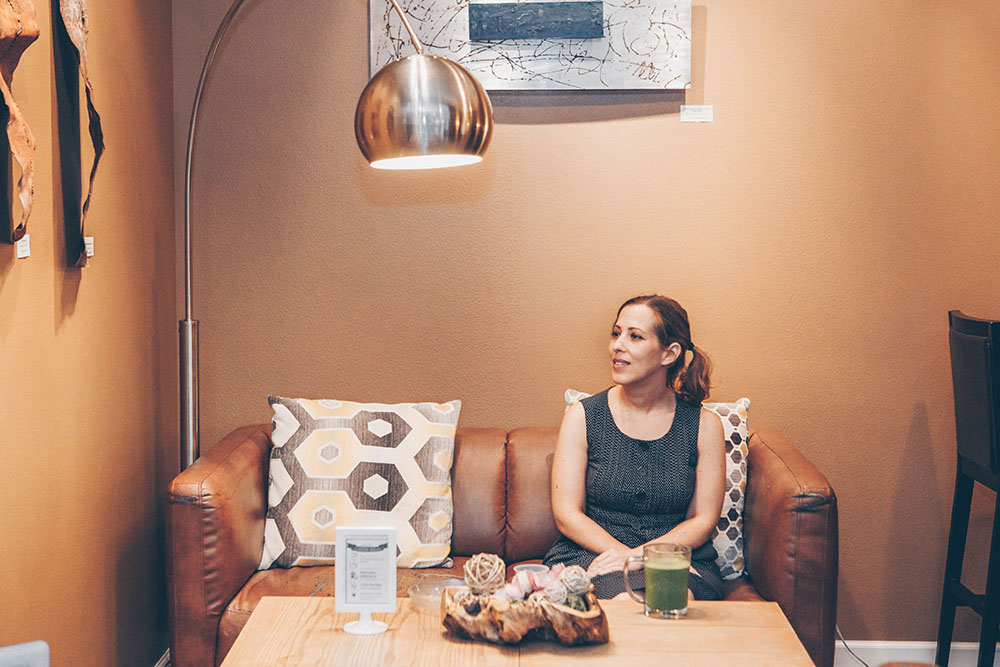If you’re bored, are you boring?
- PressCoffee
- Jul, 02, 2020
- Artist, People of Press
- Comments Off on If you’re bored, are you boring?
“I’m booooored!”
This has been a common complaint by kids during the peak of long, hot summer days but with a break from school that essentially started in March, many parents likely got sick of hearing it by the end of May. Boredom cures are needed more than ever right now in keeping kids active, families engaged, and our minds from falling into a slough of despond with the daily news cycle. Throughout the month of July, the staff at Press Coffee will be gathering our own ideas for passing time and sharing them with you online and on the walls of the shop. We encourage you to submit your own activities to us or post about them on social media.
The first step to curing boredom is to find the root cause of it. Psychology Today has a list of eight reasons for why we get bored, and the one that seems at the forefront of our ‘new normal’ lives is a lack of autonomy. When you feel trapped or lack control of your situation, such as in a pandemic, anxiety and restlessness take over. We may tire of being stuck at home all day, having binged every episode of This is Us and already tried our hand at making sourdough, now finding ourselves with nothing left to do. Monotony and repetition is another reason on the list for boredom, things that many people working from home these days are likely facing. For some introverts, this time of pause may actually be a comfort, but depending on your score on the Boredom Proneness Scale, your need for activity and excitement may be greater than some, making 2020 especially excruciating for you.

Perhaps you are still clocking productive hours at work, whether at home or in the office, but are still finding yourself bored. Psychology Today includes lack of flow on their list, meaning that we might be missing that feeling of being completely engaged in the task at hand. Zoom meetings have become a standard tool for many but are no substitute for engaging face to face, away from home where children and pets are apt to pull your attention away. Or, perhaps your 9-5 seems less important while there is so much unrest in the world, leaving you unmotivated and apathetic in your day to day life. On the flip side, essential people such as the healthcare workers who have been working overtime since the pandemic started are probably feeling overwhelmed and anxious.

Parts of the list can be applied to anyone but are likely more applicable to children who have less life experience and fewer tools to ease their discomfort. Emotional awareness and inner amusement skills can be especially difficult for younger children, particularly those who have limited speech to convey what they are feeling. A tantrum may just be a sleepy kiddo in need of a nap, but it could also be a child who is scared or confused at the state of the world and why they can’t see their friends. As an adult, you too may find yourself in a cranky mood, unwilling to root out the emotional cause behind it or disregarding the impact little joys such as seeing loved ones or eating out at a restaurant can have on our happiness.
The role of culture concludes Psychology Today’s list, and they even describe boredom as a modern luxury. Before the enlightenment and industrial revolution, a majority of life was spent securing basic necessities like food or shelter. As technology has intertwined with our lives to the point of smart houses, we have a lot more time on our hands but also a lot more issues with staying focused. Constant news updates and app notifications keep our attention divided, making it harder to stay engaged in one task at a time. Social media fractures our attention even more, as well as our mental health, as we constantly post for ‘likes’ or compare our lives with others. It can lead to anxiety, depression, or even just a fleeting case of FOMO. With fewer people embarking on trips to beautiful locations, you may instead find yourself feeling guilty about how you’ve spent your pandemic days compared to the go-getter who has learned to knit, perfected their sourdough recipe, and completed a 20-mile bike ride all in one day.
Many people are facing stress and mental health problems during the pandemic, and if you fall into that category, the CDC has some tools for dealing with that. But boredom isn’t a mental defect, in fact, boredom even has benefits. We may deal with our boredom in unhealthy ways, but understanding the cause of it and finding healthy ways to deal with it can maybe provide happier well-rounded lives. Whether you sit still with a cup of coffee and get to know yourself better through meditation, or stumble upon creative breakthroughs with your extra time, try to see boredom as a catalyst for action instead of an unavoidable affliction.
Stop into the shop over the next few weeks to see what Katie, Lisa, Kellie, and Aeja have been doing in their free time. Be sure to follow us on Facebook, Instagram, and Twitter to catch all the latest ideas we have for National Anti-Boredom Month.

Pressing Newsletter
Social
Find us online:
Facebook
Instagram:
@PressCoffee_ic
@PupsofPress
TikTok
Yelp
Order through the Joe Coffee app!

